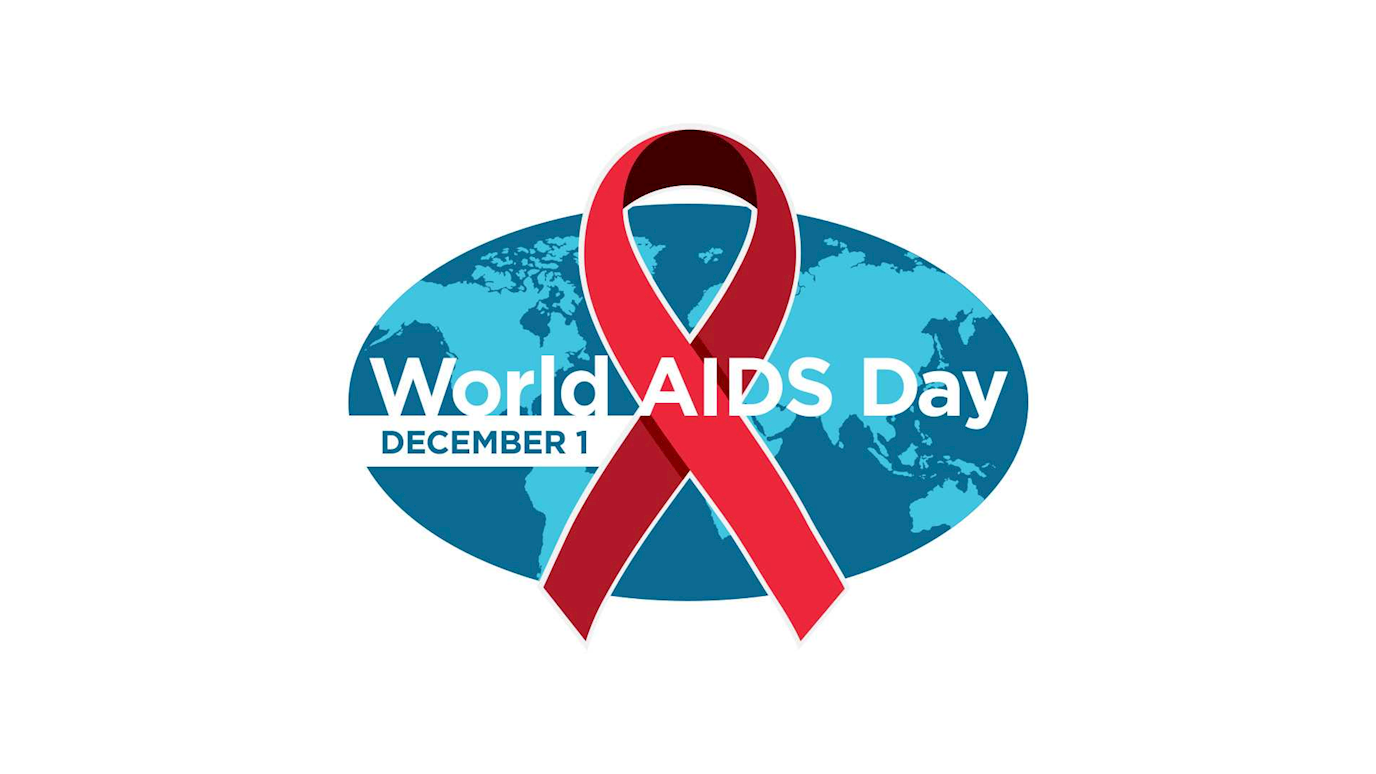Kat Osborne, postgraduate researcher at Royal Holloway University, wrote a blog for World AIDS Day. She reflects on the necessity to combat homophobia in the prevention and treatment of AIDS.

The 1st of December marks the 35th annual World AIDS Day, which has the theme ‘Let communities lead’. As of 2022, 39 million people were living with HIV worldwide, with 1.3 million new infections and 630,000 deaths of HIV-related causes. The terms HIV and AIDS are often used interchangeably and whilst they are related, they are not the same. HIV (human immunodeficiency virus) is a virus which attacks the immune system, weakening the ability to fight everyday infections . Whilst AIDS (Acquired Immune Deficiency Syndrome), is used to refer to several potentially life-threatening infections that can occur as a result of this weakened immune system. HIV is transmitted by blood or other bodily fluids, with intravenous drug use or unprotected sexual intercourse common sources of transmission.
HIV and discrimination
Individuals living with HIV/AIDS are met not only by medical challenges but the stigma and discrimination associated. Adopting Goffman’s [1] definition of stigma as something that can bring shame or discredit an individual, research has demonstrated the presence of shame and judgement surrounding a positive diagnosis of HIV. HIV-related stigma and discrimination (known as HSD) have ramifications for the global response to HIV/AIDS, impacting the detection and treatment stages, through delayed (or no) HIV testing and reduced access to healthcare and social support. Significantly, HSD increases rates of transmission and social isolation. Although HIV/AIDS and HSD are global issues, experiences vary, impacted by gender, sexual orientation, religion, culture and immigration status. Communities are integral to the response to HIV, yet significant variation occurs in the response to HSD, making this year’s theme so important.
Fast Track Cities as part of its strategy to end HIV transmission, set a target of zero HIV discrimination by 2030, however, is this achievable?
HIV and homophobia
A recent UNAIDS report collated data which highlights the global nature of HIV stigma. In 29 countries with available data, over half of individuals aged 15-49 who were surveyed said they would not buy groceries from a shopkeeper with HIV. Subsequent cross-cultural investigations have identified a strong correlation between the occurrence of HSD and several ‘at-risk populations’, notably those of drug users, sex workers, and individuals who engage in homosexual acts.
To spotlight the impact of sexual orientation on experiences of HSD, this blog focuses on examples of homophobia related to HIV diagnosis. As combatting homophobia has previously been labelled central to ending HIV transmission, emphasis in the response to HIV is often placed on the link of HIV with homosexuality. However, the influence of homophobia is visible globally. As of May 2023, homosexuality was illegal in 67 countries, with 10 countries imposing the death penalty. In countries where homosexuality or homosexual acts are illegal, fear of prosecution acts as a barrier to those seeking testing. For example, some individuals report being blackmailed or assaulted after their HIV diagnosis due to the subsequent assumptions of their sexual orientation [2]. Others reported their sexual orientation prevented them from accessing HIV -related health services, pre- and post-diagnosis which excluded individuals from having access to protective measures, testing and treatment.
Whilst, it would be fallacious to argue every with HIV individual experiences homophobia, its occurrence within communities feeds the fear of stigmatisation should they seek medical testing or treatment. Criminalisation disrupts the response to HIV/AIDS, with 94 countries criminalising HIV non-disclosure, exposure and transmission. However, where HIV-related stigma is rife or homosexuality illegal, individuals place themself in danger if they disclose their HIV status.
What can be done?
Reports have identified that barriers to reducing HSD revolve around a lack of understanding of the disease, with only 16% of people aware that once an individual is on effective treatment, they cannot pass on HIV [11]. The hyperfocus of some communities on the association of HIV with homosexuality results in the distribution of poor sexual health information, education and support, which is needed to prevent the transmission of HIV.
This World Aids Day show your support by celebrating the progress that has been in the response to HIV, with recognition of what more needs to be done. #rocktheredribbon to show your solidarity with those living with HIV, whilst remembering the lives we have lost.
Educate yourself and be vocal about inequalities, everyone has the right to effective HIV/AIDS detection and treatment.
Footnotes
[1] Goffman, E. (1963). Stigma: notes on the management of spoiled identity
[2] Banda, L. (2022). LGBT Lawfare in response to heterosexual nationalism and the retention of the anti-sodomy laws in Zambia. In Jjuuko, A., Gloppen, S., Msosa, A. and Viljoen, F. Queer lawfare in Africa: legal strategies in contexts of LGBTIQ+ criminalisation and politicisation.
























